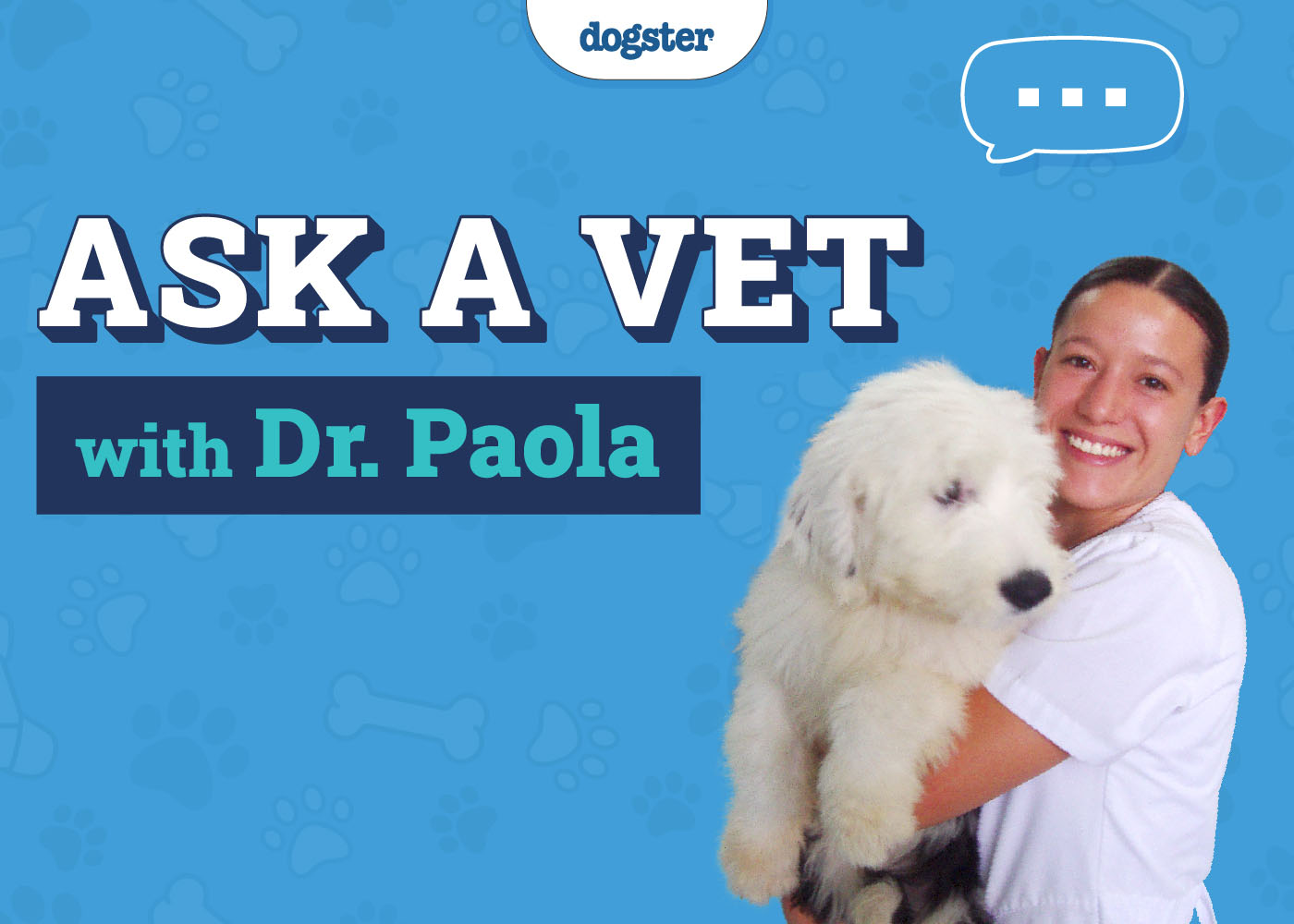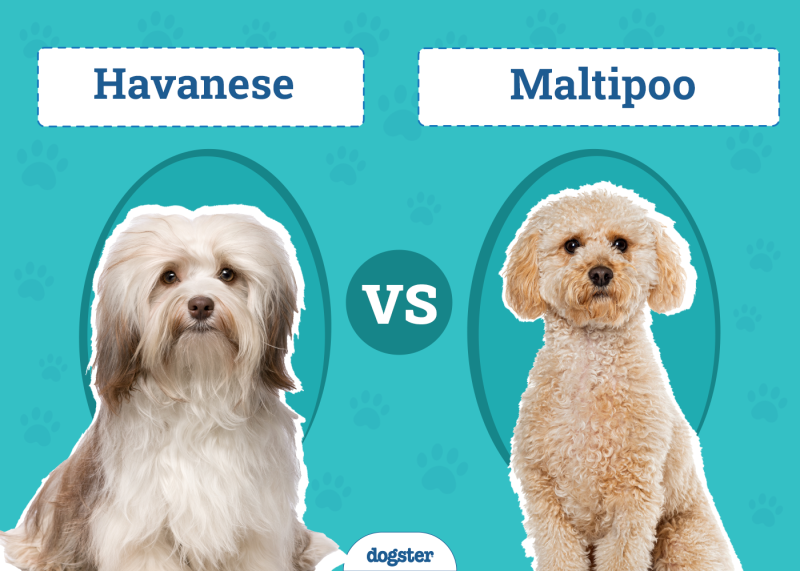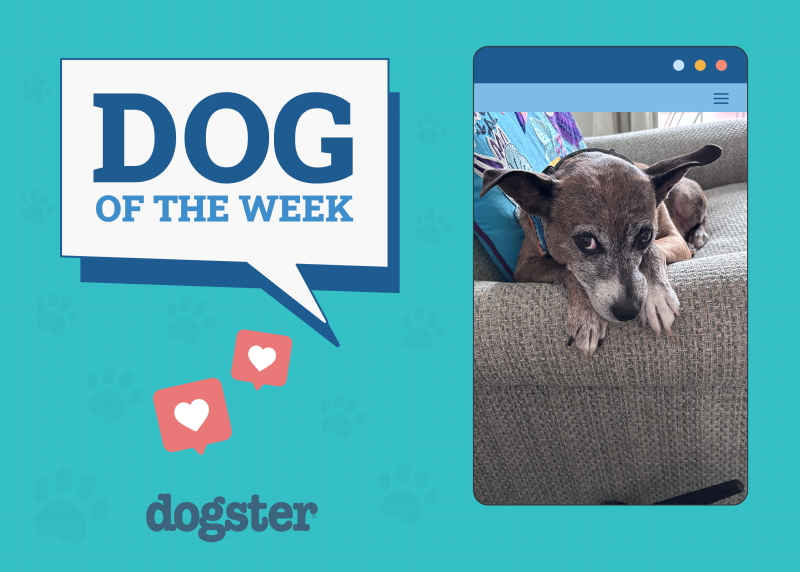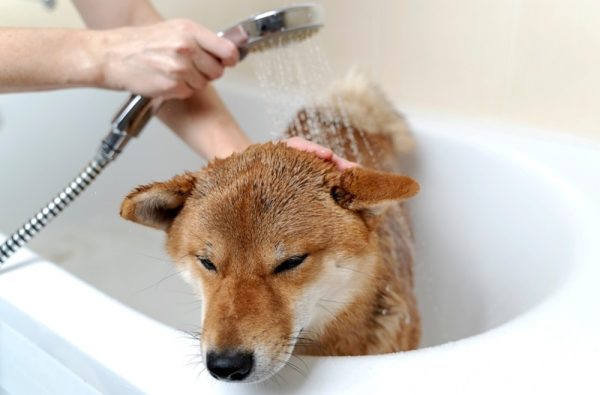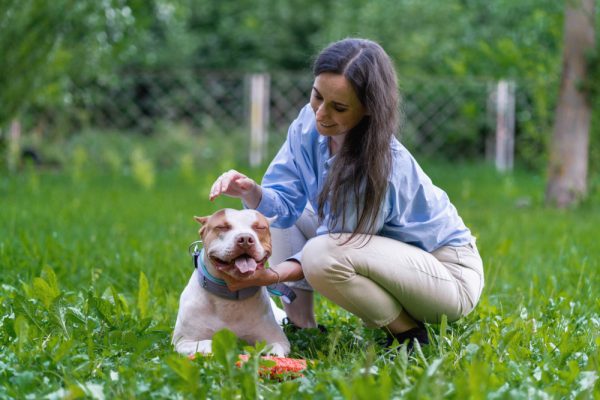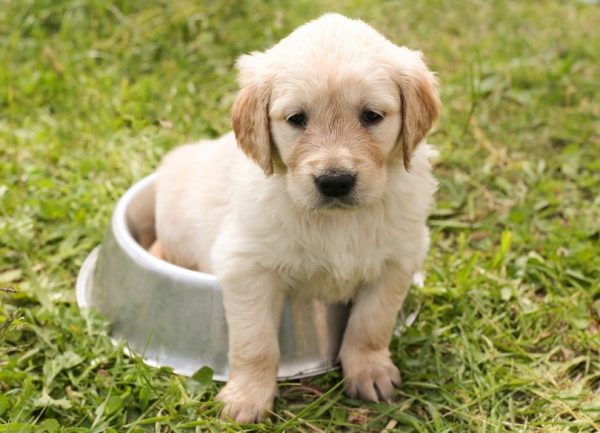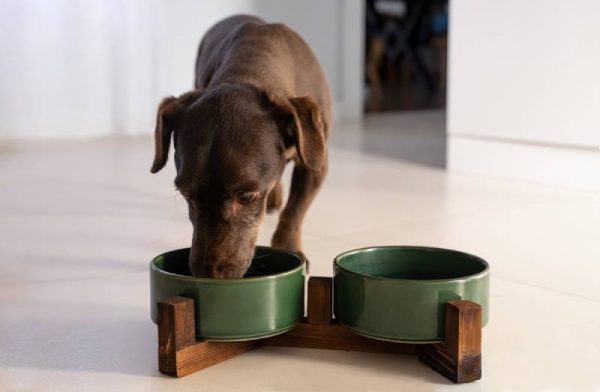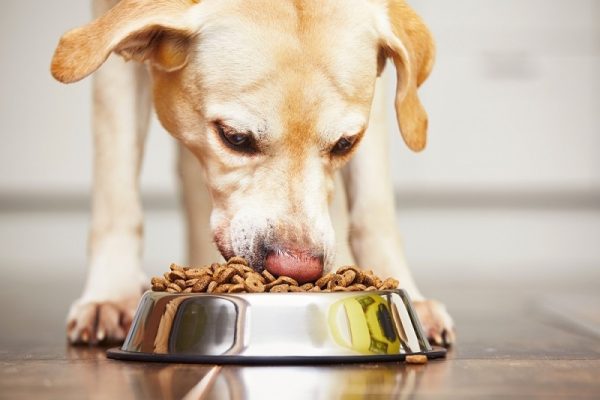Welcome to our “Ask Dr. Paola” series, where every Monday we bring expert advice straight from Dr. Paola Cuevas (MVZ) to help our readers better understand their dog’s health and well-being.
Whether you’re a new pet parent or a seasoned dog lover, Dr. Paola is here to provide answers to your most pressing questions. From nutrition tips and preventive care to troubleshooting common behavioral issues, Dr. Paola is ready to offer insights that will keep your furry friend happy and healthy. Stay tuned for expert guidance on a range of topics that matter most to you and your dog, so you can make informed decisions and provide the best possible care for your canine companion. Have a question? Send it in here!

Help! My Dog is Overweight!
“I believe Linus is very overweight. What do you recommend as an appropriate
diet?” – James
Hi James.
Recognizing that a dog may be overweight is a vital first step toward helping him live a longer, more comfortable life. So, thank you! Excess body fat in dogs, much like in people, puts strain on the joints, heart, and other organs, and can contribute to serious health issues such as diabetes, arthritis, and decreased immune function. Before adjusting Linus’ diet, it’s essential to confirm his ideal weight range based on his breed, age, and body condition. A hands-on evaluation using a body condition score (BCS) chart is a helpful guide; it is not rocket science, but if you’re unsure, a consultation with a veterinary professional, like one of our veterinarians at PangoVet, can provide an accurate assessment.
When it comes to weight loss, a species-appropriate, portion-controlled diet is the foundation. This typically means a diet rich in high-quality animal protein, moderate in fat, and low in carbohydrates. Some commercially available weight management diets are formulated to support fat loss while preserving lean muscle. However, the key lies in the portion size and consistency. Measure Linus’ meals with a kitchen scale rather than relying on cups, which tend to be imprecise. Incorporating gentle, regular exercise tailored to his current fitness level is equally important. Avoid feeding table scraps or high-calorie treats. Instead, use small portions of his daily food as training rewards or opt for low-calorie alternatives like green beans or carrot slices. A gradual, steady weight loss of around 1 to 2 percent of body weight per week is considered safe and effective.
I wish you and Linus good luck on the weight loss mission!
Dr. Paola
If you want real time answers to your questions, you can talk to one of our veterinarians online. Click on the image or button below:


Help! I Found Worms in My Dogs Poop!
“I recently dewormed my Yorkshire Terrier Lucy with medication that I got from my local vet. After deworming her, she started coughing and appeared to be nauseous. This went away after a day or two. A few weeks later, I tried a natural remedy of ground-up papaya and pumpkin seeds, and I noticed what appeared to be some type of worm in her faeces—like long grains of rice. Does deworming with Milpro or similar products kill all worms, including the eggs, or does it only kill the adult worms?“ – Robert
Hi Robert,
Thanks for being attentive to Lucy’s health. It’s not unusual for dogs to show brief signs like coughing or nausea after deworming, especially if there’s a significant parasite load. These signs often reflect the body’s response to the dying parasites and usually resolve quickly, as you observed. Natural remedies like papaya and pumpkin seeds are popular in holistic circles. Although there is, to my knowledge, only one preliminary study that provides promising evidence supporting their antiparasitic effects, they haven’t been scientifically proven to fully eliminate intestinal parasites. What you saw in Lucy’s stool resembling long grains of rice is most likely tapeworm segments, which are shed by the parasite as part of its life cycle. This is how they spread their eggs into the environment.
Milpro is a broad-spectrum dewormer that targets several adult intestinal worms, including roundworms, hookworms, and tapeworms. However, like most anthelmintic medications, it primarily kills adult worms as well as immature stages, not the eggs. That’s why repeat treatments or strategic timing based on the worm’s life cycle are necessary to break the cycle and prevent reinfestation. This is what we usually refer to as a deworming schedule. Tapeworms, in particular, are closely linked to fleas, so it’s important to also ensure consistent flea prevention. For a parasite control plan to truly be effective, it’s important to consider both the local parasite risks and your dog’s lifestyle. Factors like whether Lucy spends time outdoors, interacts with other animals, or lives in a high-risk area can all influence which approach is best. This is why seeking guidance from a veterinary professional is key to tailoring a plan that fits Lucy’s specific needs and environment.
For pet parents used to giving their dogs the same deworming chew month after month, it’s worth mentioning that parasites can gradually develop resistance if the same type of dewormer is used repeatedly over time. This is a public health concern, but rotating or combining treatments under veterinary supervision can help prevent this.
One last thing worth mentioning is that because parasites can easily spread between pets in the same household, it’s recommended to treat all animals in the home at the same time, even if only one is showing signs of an infestation. Considering all of these steps can make a big difference in keeping your pet healthy and parasite-free. I hope this helps!
Dr. Paola

Help! My Dog Growls at Visitors!
“Elsa is a gentle German Shepherd, but sometimes she growls at certain visitors, but not others. It’s not always new people either, some new people she is fine with, but others she growls. She scares people because of her size, but I know she is very gentle. I just wonder why she picks certain people and not others? Is there anything I can do to stop this, or is it good behavior to have because she might sense things that we don’t?“ – Karol
Hi Karol,
Thank you for your thoughtful question. Elsa sounds like a sensitive and intelligent girl, and, understandably, her growling can be disturbing to some visitors, even if you know her gentle nature. What you’re describing is a common behavior among dogs, especially breeds like German Shepherds, who have strong protective instincts. Dogs rely heavily on body language, scent, and energy, and Elsa is likely responding to subtle cues in the people she meets. This can include nervousness, unfamiliar scents (like another dog, alcohol, or certain medications), or even posture and tone of voice. Her growling isn’t necessarily a sign that someone is “bad” but rather that she’s unsure or uncomfortable in that moment.
Growling is actually a valuable form of communication. It’s Elsa’s way of saying, “I’m not comfortable,” without escalating to more serious behavior. The goal isn’t to suppress the growl but to understand and guide her through those moments. One helpful approach is to create a predictable, calm routine when guests arrive. You might have Elsa on a leash nearby with some high-value treats and reward her for remaining calm and relaxed. If she growls, don’t punish her, as that can teach her to skip the warning next time. Instead, calmly redirect her attention and move her away to give her space. Here, the main challenge for you is to try to figure out what it is that triggers her; is it a hat? A perfume? The voice tone? It’s not easy, but a bit of detective work is always needed as we are trying to decipher or better understand our furry family members. Once identified or at least narrowed down to a few possibilities, you can work on counter-conditioning those triggers with the help of a positive reinforcement trainer or even some of your triggering visitors, as long as they can follow instructions and remain calm. The clue is always to reinforce Elsa’s calm behavior while teaching her that what she perceives as a treat is nothing to worry about.
If the behavior becomes more intense or unpredictable, a consultation with a professional in person can help you assess her environment and patterns in more detail. Many times, it is we who need some behavioral modifications to successfully manage our pets, and that’s totally fine; in the end, what is most important is that we are all trying our best to understand and protect each other’s well-being.
Good luck!
– Dr. Paola
- View past week’s questions here: May 12, 2025
- See our full list of past articles here
- Click here to submit a question
- Get Dr. Paola’s weekly advice sent straight to your inbox. Sign up below!


